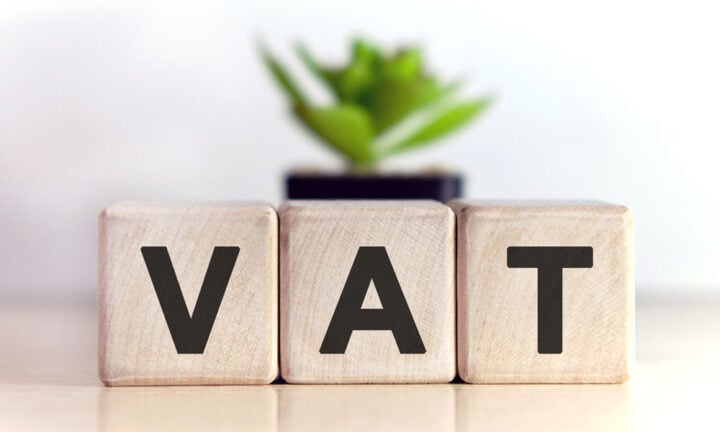Many of Nigeria’s restructuring advocates have been in a very expansive mood since the federal high court in Port Harcourt ruled that states and not the federal government should collect value-added tax. On the surface, I also think it was a good judgment that will fiscally reset our federal system.
On a much deeper level, the judgment will mortally wound more than 30 states. The downside of the judgment, for me, is the ethnic dimension many commentators have introduced to it. Those who see the judgment as another north vs south debate are missing the point. With the judgment, only Lagos, Rivers, and FCT will become viable within the federation as they will collect over 80% of in-country VAT. What this means is that the other 34 states will lose a chunk of their revenue.
This will put states like Ekiti, Osun, Ebonyi, Kebbi, Benue, Abia, Edo, Cross Rivers, Taraba, Gombe, Jigawa, etc under serious fiscal pressure. In these states, payment of civil servants’ salaries will become more problematic and funding for social services will go down. More Nigerians will troop to Lagos, Rivers, and FCT for economic opportunities. It will create a further imbalance in development. People from affected states, especially operators of the informal sector, who rely on public sector spending, will sink further into poverty.
Former minister of finance, Kemi Adeosun, once remarked that 87% of Nigeria’s VAT comes from four states and the FCT while only 13% comes from 32 other states of the federation. Adeosun made the disclosure at a parley between the federal government and Progressive Governors’ Forum (PGF) where she gave the breakdown that Lagos has the highest VAT collection, amounting to 55% of the total, FCT 20%, Rivers 6%, Kano 5%, and Kaduna 1%. Tax experts have now told us that apart from the location advantage of Lagos as the former federal capital, the state is also enjoying what they call, ‘headquarters effect’ in terms of VAT revenue. This is because companies that have operations across the entire country or whose goods and services are consumed across the country remit their VAT through their headquarters in Lagos.
Advertisement
Perhaps, what many are not putting into proper perspective in this VAT debate is that Lagos and Rivers states didn’t do any extra-terrestrial work to be so favoured. The advantage Lagos, Rivers, and FCT have over other states’ capacity to generate VAT is the fact that Nigeria’s formal economy is concentrated in these places while others run an informal economy, largely.
While Rivers state’s economy boomed on the back of hydro-carbon as the major oil-producing state, Lagos has the advantage of being the main economic gateway of Nigeria with seaports, the main international airport coupled with the good fortune of being the capital of the country for almost 100 years. So, it is not the case that there are no economic and consumptive activities in other states. Ekiti state, for example, has an economy that is worth $2.7bn in GDP size according to the National Bureau of Statistics, Osun is worth $7.5bn, Kano $12bn, Borno $5bn, Niger $6bn, among others.
There is no state in Nigeria that is less than $2bn in size of their GDP. These figures are as far back as 2010 and it means they would have doubled. There are enough economic activities in other states that can give them good VAT revenue contrary to the popular view that some states are feeding off the prosperity of a few. The main issue with the states outside Lagos, Rivers, and FCT is the fact their economic activities are mainly informal. It is much more difficult to track and collect VAT from informal sector operators.
Advertisement
How fair is the argument that a section of the country is parasitic or not contributing to the VAT pool? The northern states are the usual boogeyman when this point of parasites comes up. The north is the major agricultural production belt of the country but VAT is not charged on agricultural produce to ensure food security and affordability for the people.
The exemption of agricultural produce from VAT creates an unfair disadvantage for states that are predominantly food producers. They can’t charge VAT on their major source of income and yet we blame them for not being able to generate enough VAT and describe them as lazy, when in the real sense, they are more productive than southern states. According to the National Bureau of Statistics (NBS), the 2021 Q2 GDP figure showed that while crude oil only contributed 5.8% (N2.27 trillion ) to the GDP, agriculture recorded 22.1% (N8.6 trillion) and manufacturing 14.3% (N5.55 trillion).
Ironically, in the same period that agriculture contributed almost N9 trillion (22%) to the GDP, it only contributed N760m (0.2%) to VAT while crude oil GDP N2.2trillion (5.8%) contributed N9.5bn in VAT (1.8%). This happened courtesy of a deliberate government policy of the federal government that does not allow VAT on agricultural products.
It should be stated that part of the advantages of a federal system is that stronger states should not overwhelm weaker ones. It is the reason federalism is not practised exactly the same way. Its practice and peculiarities vary from one country to the other, even though the underlining principles remain the same. Countries practice federalism to suit their own socio-economic and socio-cultural realities.
Advertisement
In light of the federal high court judgment that empowers state governments to collect VAT within their jurisdiction, many have erroneously claimed that VAT (which is also called goods and services tax in some countries) is a tax that is collected by state/regional government. This is not totally correct. Since Nigeria is a federation, we should compare it with other federations. Brazil, Australia, Argentina, Germany, Canada, India, Russia, UAE are countries that run the federal system. In these countries, the central governments collect VAT/GST. It is misinformation being parodied by “true federalism” activists when they argue consumption tax like VAT is strictly state/regional government tax.
In any case, one of the core principles of federalism is fiscal stabilisation of the federating units through redistribution of wealth such that the stronger states can offer some leverage to weaker states. For all the states in Nigeria, redistribution of VAT provides fiscal stability as it forms at least 25% of the total annual revenue of all the 36 states.
It is worth stating that in these aforementioned countries including the United States, personal income tax (PIT) is a federal tax, whereas PIT is a tax exclusively collected by states in Nigeria. US and Canada for example get 50% (approximately) of their revenue from personal income tax. The problem with us in Nigeria is we have a way of running with every one-liner and buzz words thrown at us by mischievous political elites. This court judgment will create serious fiscal dislocation for at least 30 states if it ever stands at appellate courts. Governors that are opposed to it have good reasons to do so.
Those who see this as a zero-sum game should also understand that federal resources were used to develop Lagos, Rivers, and FCT to be what they are today in terms of their capacity to generate large VAT. Justice Stephen Pam of the federal high court obviously didn’t consider the spirit of the constitution in his ruling. He gave the ruling strictly on what the letters say. It is good that the court of appeal has stopped the implementation of any state VAT law until the case is finally determined. In a country like Nigeria, statecraft requires that the courts should consider both the spirit and letters of the law before making definitive judicial pronouncements.
Advertisement
Views expressed by contributors are strictly personal and not of TheCable.







